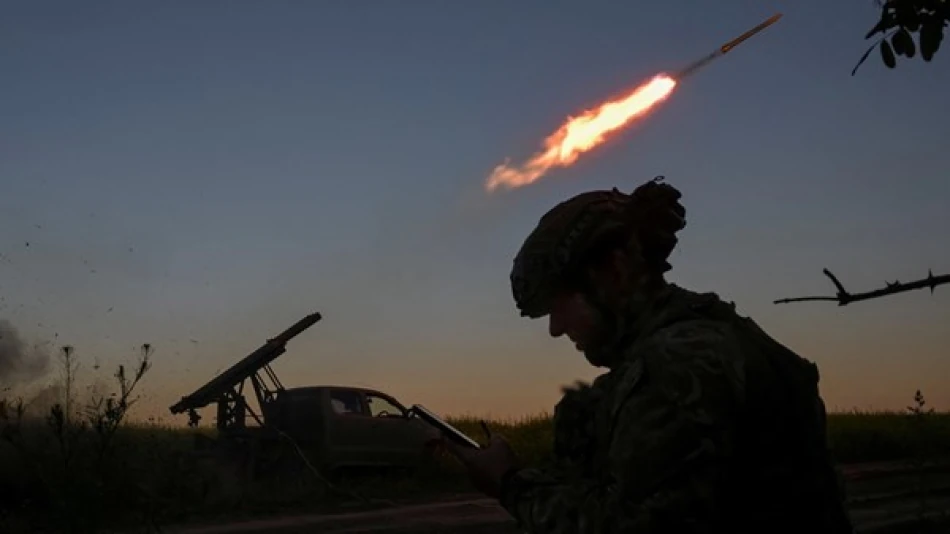
German Chancellor Shares Insights on Duration of Ukraine Crisis
German Chancellor Warns Ukraine War Could Drag On for Years as Peace Efforts Stall
German Chancellor Friedrich Merz has delivered a sobering assessment of the Ukraine conflict, predicting a prolonged war that could stretch well into the future. His warning comes as diplomatic efforts intensify but fundamental conditions for ending the conflict—military defeat or economic exhaustion—remain absent, setting the stage for what could become Europe's longest war since World War II.
The Grim Reality of Modern Warfare
Speaking on German television network ZDF on Sunday, Merz outlined the harsh mathematics of contemporary conflict resolution. "I am preparing myself for this war to continue for a long time," he stated, pointing to historical precedent that wars typically end through decisive military victory or economic collapse—neither of which appears imminent in the current standoff.
This assessment reflects a growing realization among European leaders that the Ukraine conflict has entered a phase of strategic stalemate. Unlike the swift campaigns that characterized earlier European conflicts, this war has evolved into a grinding attritional struggle reminiscent of World War I's Western Front, where territorial gains are measured in kilometers rather than regions.
Diplomatic Deadlock Despite Intensive Efforts
Merz acknowledged ongoing diplomatic initiatives aimed at ending the crisis but emphasized that peace cannot come "at the expense of Ukraine's surrender," which he categorically ruled out as an option. This stance aligns with broader European Union policy but creates a fundamental impasse with Russian demands.
The German leader's comments came on the same day that the Russian presidency accused European powers of obstructing peace efforts by U.S. President Donald Trump. Moscow indicated it would continue military operations until it sees "real signs" of Ukraine's willingness to negotiate—a position that suggests both sides remain far from meaningful compromise.
Security Guarantees Remain Undefined
When pressed about the possibility of deploying German troops to Ukraine as part of future security guarantees following any peace agreement, Merz notably declined to comment. This silence speaks volumes about the complex calculations European leaders face regarding post-conflict arrangements and their willingness to provide concrete military commitments.
Economic and Strategic Implications
Merz's prediction of a prolonged conflict carries significant implications for European economic planning and defense spending. Germany, as Europe's largest economy, has already committed substantial resources to supporting Ukraine while simultaneously rebuilding its own military capabilities after decades of reduced defense investment.
A extended war scenario would likely accelerate Europe's strategic autonomy initiatives, potentially reshaping global supply chains and energy markets for years to come. The conflict has already triggered the fastest military spending increases in Europe since the Cold War, with Germany alone pledging to meet NATO's 2% GDP defense spending target.
Historical Precedent Suggests Caution
Merz's reference to wars ending through military defeat or economic exhaustion draws from centuries of European conflict resolution. The Napoleonic Wars lasted over a decade, while World War I required four years of unprecedented destruction before reaching conclusion. Modern conflicts in Afghanistan and Iraq have demonstrated that even technologically superior forces can become mired in prolonged engagements without clear victory conditions.
The Ukraine situation presents unique challenges that could extend the timeline further. Both sides possess substantial military-industrial capacity, international support networks, and populations seemingly prepared for extended sacrifice. Unlike previous European conflicts, this war also carries nuclear dimensions that constrain escalation options while potentially prolonging the conventional phase.
Trump's Peace Initiative Faces European Skepticism
The disconnect between Russian accusations of European obstruction and Merz's insistence on protecting Ukrainian sovereignty highlights the complexity facing any peace initiative. Trump's promised rapid resolution of the conflict encounters the reality that sustainable peace requires addressing fundamental security concerns that predate the current administration.
European leaders appear increasingly skeptical that quick diplomatic solutions can address the underlying strategic competition between NATO expansion and Russian sphere-of-influence claims. This skepticism, reflected in Merz's long-term perspective, suggests that any American peace initiative will need European buy-in to prove durable—making compromise even more difficult to achieve.
Most Viewed News

 Layla Al Mansoori
Layla Al Mansoori






